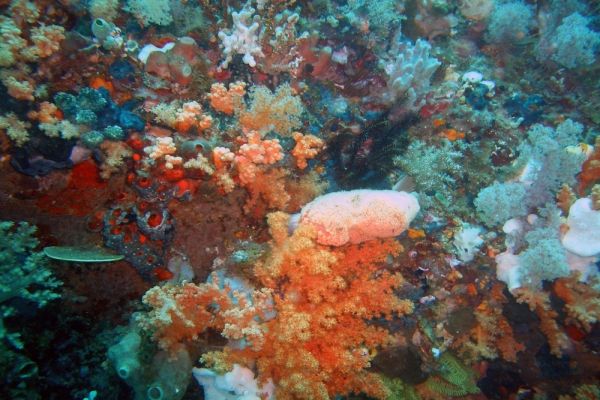A sponge found in Manado Bay, Indonesia, makes a molecule called manzamine A, which stops the growth of cervical cancer cells, according to a recent publication in the Journal of Natural Products submitted by researchers at the Medical University of South Carolina (MUSC). Collaborators included students and investigators at the University of South Carolina (UofSC), College of Charleston, Gadjah Mada University in Indonesia and the University of Malaya in Malaysia.
The American Cancer Society estimates that there will be 13,800 new diagnoses of cervical cancer and 4,290 deaths in 2020. Though Pap tests and HPV vaccination have decreased the number of cervical cancer deaths, cervical cancer remains the fourth most common cancer in women.
The MUSC-UofSC study examined the anti-growth and cancer cell-killing effects of manzamine A in four different cervical cancer cell lines. Manzamine A stopped cervical cancer cells from growing and caused some cells to die but did not have the same effects on normal noncancerous cells.
Read more at Medical University Of South Carolina
Photo: Manado Coral Garden. Photograph by Samuel Chow.This file is licensed under the Creative Commons Attribution 2.0 Generic license.


